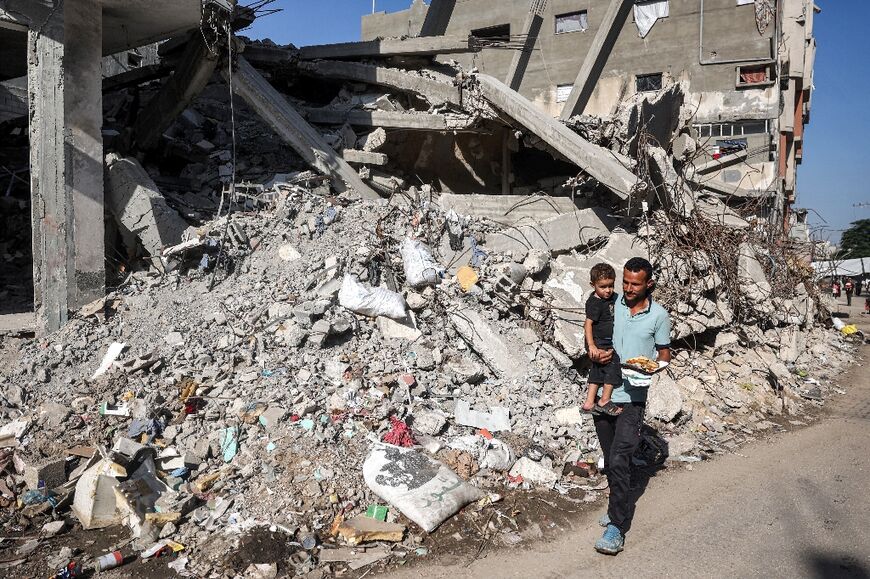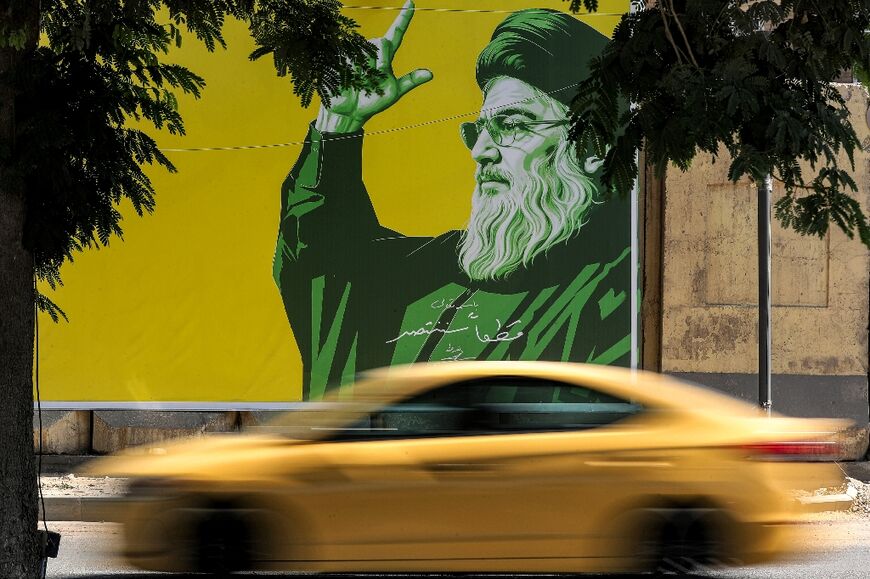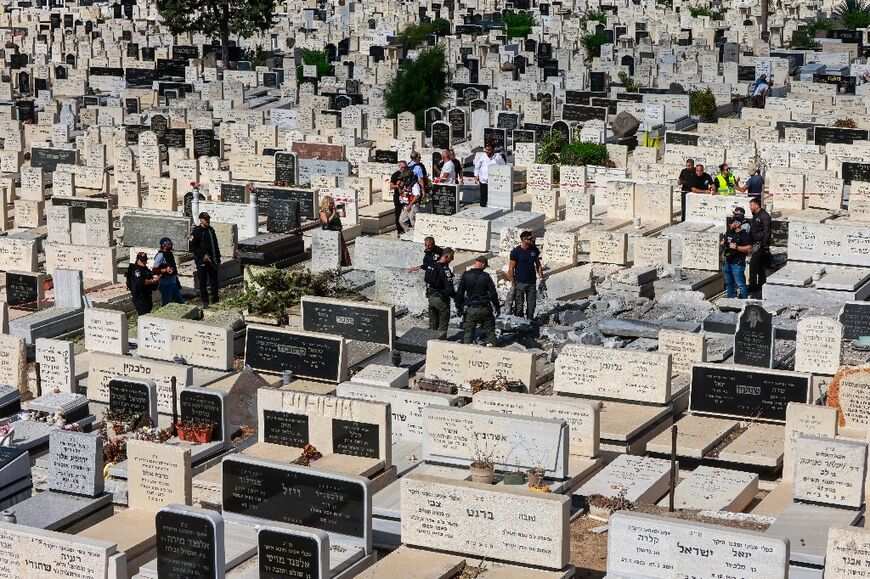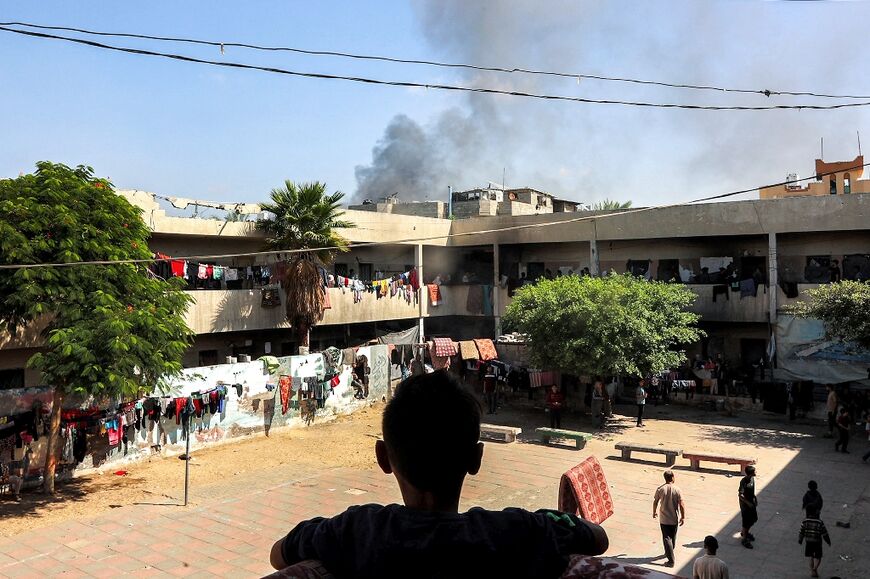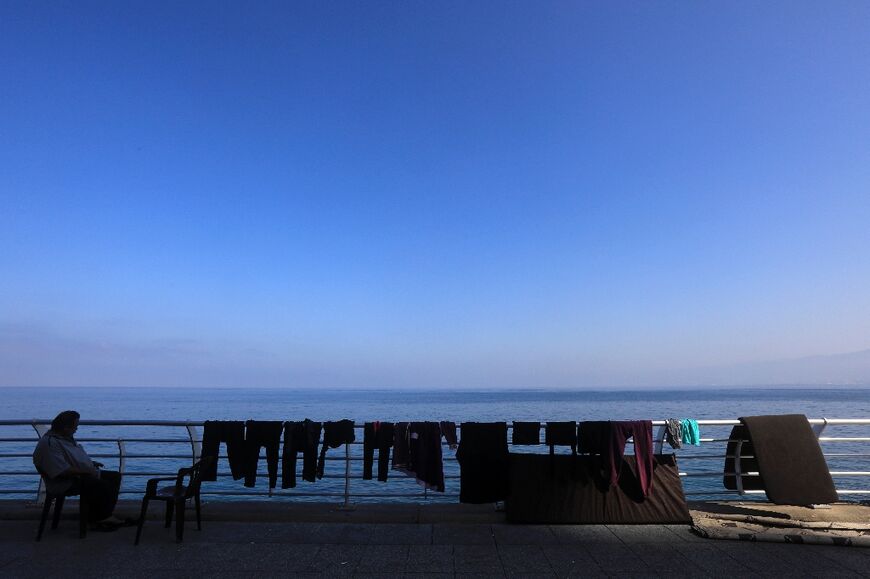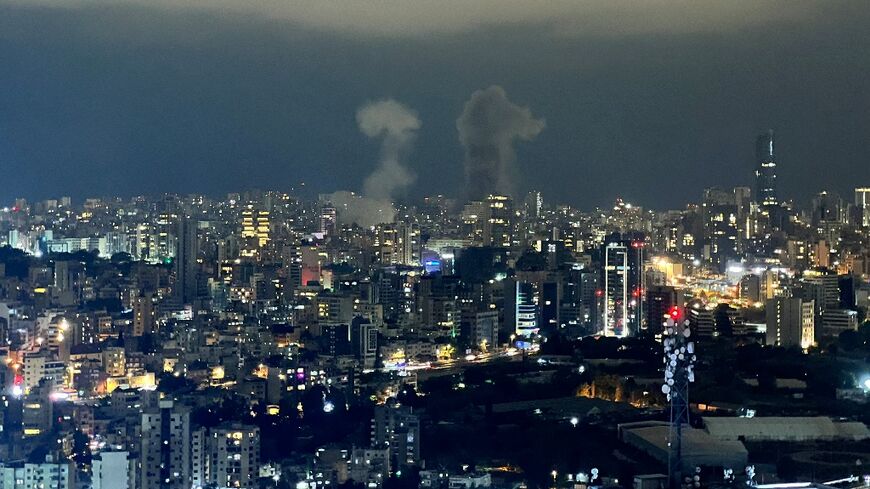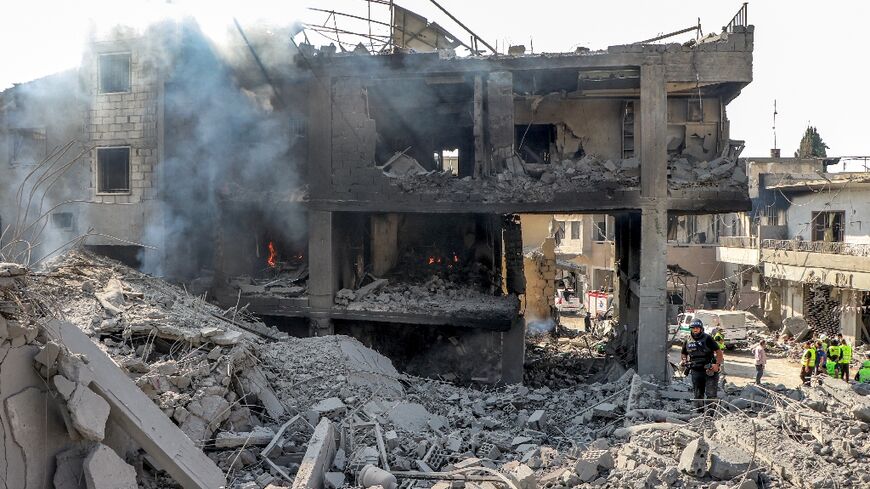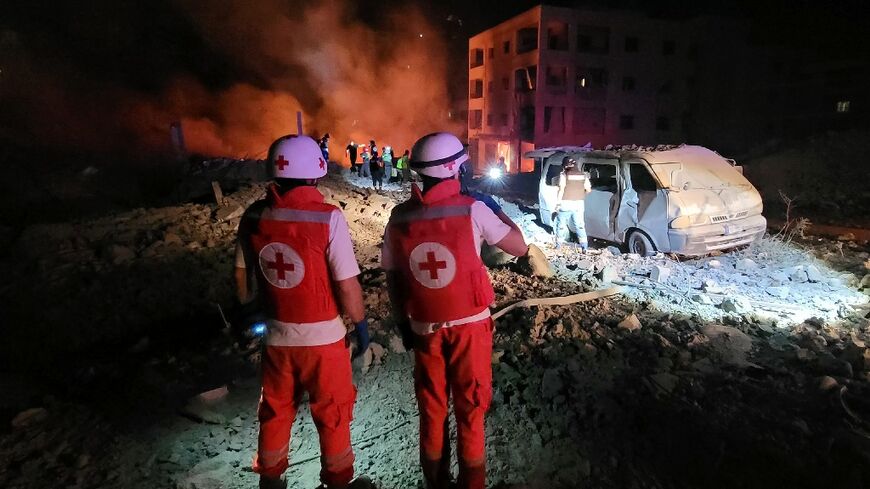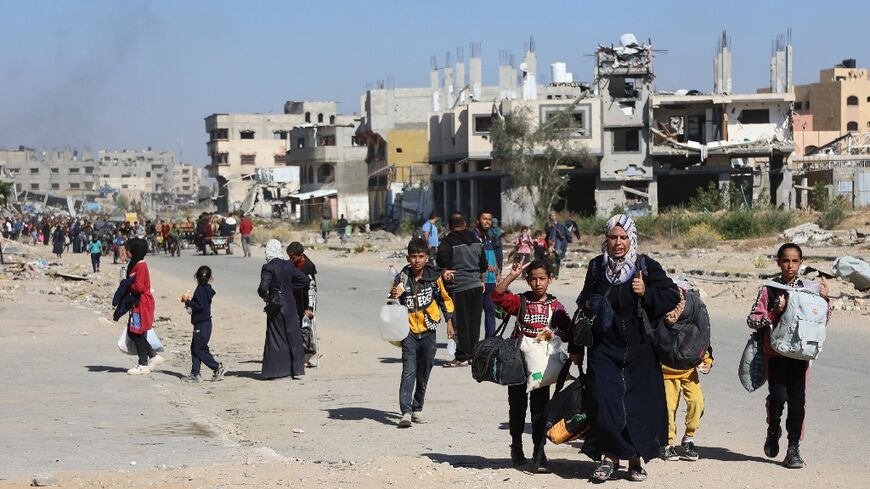US warns Israel not to repeat Gaza destruction in Lebanon

Israel's main international ally the United States warned Wednesday against Gaza-like military action in Lebanon after Prime Minister Benjamin Netanyahu threatened it with "destruction" similar to that of the Palestinian territory.
But armed forces chief Herzi Halevi vowed to keep up Israel's intensive bombing of Hezbollah targets, which has already killed more than 1,200 people since September 23, "without allowing them any respite or recovery".
The comments came after a hotly anticipated phone call between Netanyahu and US President Joe Biden, their first in seven weeks, which had been expected to focus on Israel's response to last week's missile barrage by Iran.
During the call, Biden told Netanyahu to "minimise harm" to civilians in Lebanon, particularly in "densely populated areas of Beirut", the White House said.
"There should be no kind of military action in Lebanon that looks anything like Gaza and leaves a result anything like Gaza," State Department spokesman Matthew Miller told journalists.
Netanyahu said in a video address to the people of Lebanon on Tuesday: "You have an opportunity to save Lebanon before it falls into the abyss of a long war that will lead to destruction and suffering like we see in Gaza."
He added: "Free your country from Hezbollah so that this war can end."
- 'Deadly, precise' retaliation -
Biden and Netanyahu's call had been expected to focus on Israel's response to last week's missile barrage by Iran.
Iran fired about 200 missiles at Israel in what it said was retaliation for the killing of Hezbollah leader Hassan Nasrallah and Hamas leader Ismail Haniyeh. Most were intercepted by allied air forces or Israel's own air defences.
Biden has cautioned Israel against attempting to target Iran's nuclear programme, which would risk major retaliation, and is also against striking the country's oil installations, which would send world crude prices spiking.
A Lebanese government source told AFP that Hezbollah had accepted a ceasefire with Israel on September 27, the day an Israeli strike killed the Iran-backed militant group's leader Hassan Nasrallah.
But they said Israel's response had torpedoed the ceasefire plan, backed by Washington and its allies, and the Lebanese government had "had no contact with Hezbollah" since his death.
Israel's Defence Minister Yoav Gallant said: "Our attack on Iran will be deadly, precise and surprising."
- Hezbollah rockets, Israeli strikes -
Hezbollah said its fighters were locked in clashes with Israeli troops in southern Lebanon, using rocket-propelled weapons to repel attempts to breach the border.
Two people were killed by suspected Hezbollah rocket fire in the northern Israeli town of Kiryat Shmona, while Israeli air defences intercepted two projectiles fired towards the coastal town of Caesarea, officials said.
Lebanon's health ministry said at least four people were killed in an Israeli strike on a village in the Shouf district, southeast of Beirut, a region so far largely spared by Israel's intensified bombing campaign.
Lebanon's state civil defence body later said an Israeli strike killed five of its personnel in the southern village of Derdghaiya.
Israel has intensified air strikes on Hezbollah strongholds in Lebanon since September 23, forcing more than a million people to flee, according to an AFP tally of official figures.
Its ground forces crossed into Lebanon on September 30 in response to Hezbollah rocket and artillery attacks over the past year that have forced tens of thousands of Israelis from their homes in border areas.
Israel's military said Wednesday that its troops had "eliminated terrorists during close-quarter encounters and in aerial strikes" over the previous 24 hours, adding that "100 Hezbollah terror targets were destroyed".
Israeli operations have expanded from border areas in the interior to the southern section of Lebanon's Mediterranean coast.
According to a new toll from the Israeli army on Wednesday, 13 of its soldiers have died since ground operations inside Lebanon began.
Syrian state media reported an Israeli attack early Thursday on the central provinces of Homs and Hama, after an Israeli strike hit the country's south the previous day.
Israel's air force said Wednesday it had killed a Hezbollah member named Adham Jahout in Syria.
- Civilians trapped in north Gaza -
Israel expanded an ongoing military operation around Jabalia in the north of Gaza, where around 400,000 people are trapped, according to Philippe Lazzarini, head of the UN agency for Palestinian refugees (UNRWA).
Posting on social media platform X, Lazzarini said there was "no end to hell" in the area and that "recent evacuation orders from the Israeli authorities are forcing people to flee again & again".
The army surrounded the town of Jabalia and its refugee camp over the weekend and was shelling it on Wednesday, preventing the delivery of aid, the Palestinian territory's civil defence agency said.
Washington said it was "incredibly concerned" about the humanitarian situation in north Gaza as Israel tightens its siege, adding that it had been "the subject of some very urgent discussions between our two governments".
"We have been making clear to the government of Israel that they have an obligation under international humanitarian law to allow food and water and other needed humanitarian assistance to make it into all parts of Gaza," State Department spokesman Miller told journalists.
Israel's retaliatory offensive has killed at least 42,010 people in Gaza, according to figures from the Hamas-run territory's health ministry that the United Nations has described as reliable.
- Displaced in Beirut -
Israeli police said at least six people were wounded Wednesday, some of them seriously, in a stabbing rampage at four locations in the central Israeli town of Hadera.
In the occupied West Bank, Israeli border police killed at least four Palestinians in the northern city of Nablus, Palestinian health authorities and Israeli security forces said.
In Beirut, many people are sleeping out in the streets after Israeli air strikes and dozens of displaced families were seen on Beirut's seafront Wednesday.
Ahmad, a 77-year-old Beirut resident who did not want to give his family name for fear of reprisals, said he had a message for Hezbollah.
"If you can't continue to fight, announce you are withdrawing and that you have lost. There is no shame in losing," he said.
But Raed Ayyash, a displaced man from the south of the country, said he hoped Hezbollah would keep fighting.
"We hope for victory, and we will never give up," he said.
burs/rlp/mca/cwl


